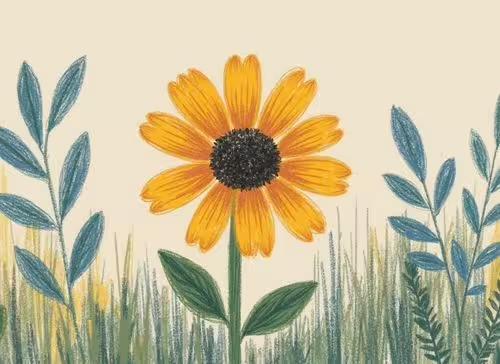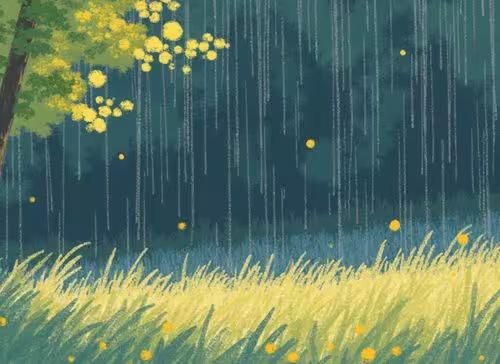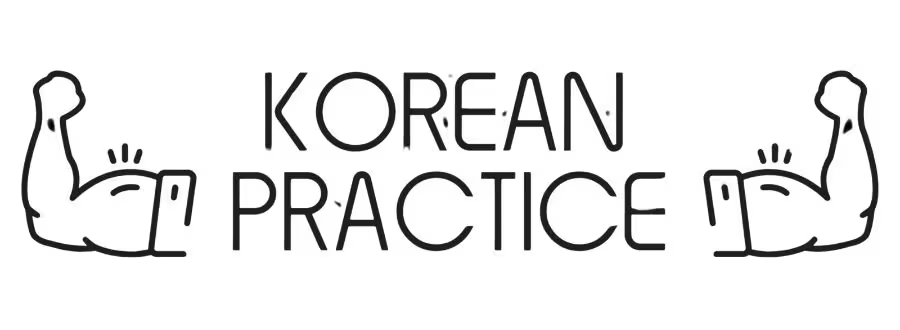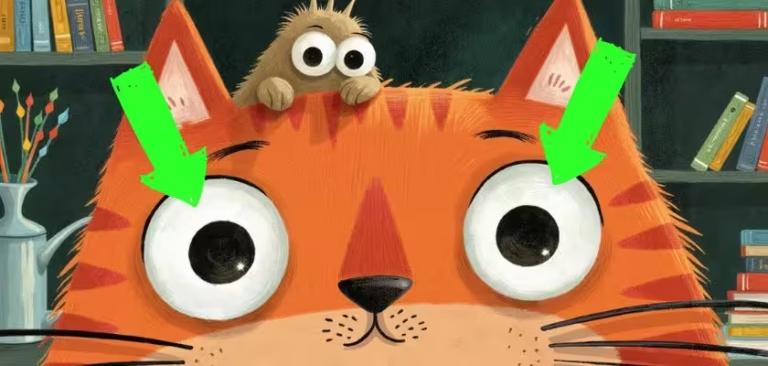If you’re looking for the quickest answer: “Nature in Korean” is 자연 (jayeon).

But that’s just the beginning — Korea’s nature vocabulary is full of beautiful, meaningful words that will help you understand the country’s landscapes, culture, and poetry on a deeper level. 🌿
Korea isn’t only known for K-pop and big cities. It’s also home to peaceful mountains, calm rivers, colorful forests, and breathtaking coastlines. Learning Korean nature words helps you appreciate these scenes the way Koreans do — through simple but expressive vocabulary.
In this guide, you’ll discover 19 essential Korean nature words that appear in everyday conversations, photos, stories, and even traditional poems.
If you want to truly connect with the beauty of Korea, keep reading — you’re about to see nature in Korean in a whole new way.
Follow These Steps
Step 1: Listen & Shadow
Follow the audio and speak along with the highlighted text.
Step 2: Check & Learn
Use the breakdowns to understand grammar, vocab, and meaning.
Go Deeper
STEP 1 Listen & Shadow
Click play and speak along with the highlighted text below
Table of Contents
STEP 2 Check & Learn
1. 자연 (Jayeon) – Nature in Korean
At the heart of it all is “자연,” nature in Korean. Understanding this term is the first step in appreciating Korea’s natural wonders. If you’re curious about the jayeon meaning, it’s more than just “nature” — it represents the natural balance and harmony that many admire in beautiful nature in Korean.
Original Korean Sentence
A: 와, 여기 자연이 정말 아름다워요! B: 네, 정말 아름다운 자연이에요.
Pronunciation Guide
A: 와 (wa), 여기 (yeo-gi) 자연이 (ja-yeo-ni) 정말 (jeong-mal) 아름다워요 (a-reum-da-wo-yo)! B: 네 (ne), 정말 (jeong-mal) 아름다운 (a-reum-da-un) 자연이에요 (ja-yeo-ni-e-yo).
Meaning and Context
A: 와 (wow), 여기 (here) 자연 (nature) 이 (my subject is the nature) 정말 (truly) 아름답 (to be beautiful) 어요 (is; I’m telling you polite and friendly)! B: 네 (yes; in a polite way), 정말 (really) 아름다운 (beautiful) 자연 (nature) 이에요 (is; I’m telling you polite and friendly).
Pronunciation Patterns for Conjugations
* 아름답 + 어요 = 아름다워요
When rapidly pronounced, ‘답’ and ‘어’ naturally combine to form ‘다워’.
English Translation
A: Wow, the nature here is truly beautiful! B: Yes, it’s really beautiful nature.
Literal Translation
A: Wow, nature here is truly beautiful! B: Yes, (it)’s really beautiful nature.
Still wondering how to read Korean?
2. 산 (San) – Mountain in Korean
Korea is known for its majestic mountains, and “산” is the word that encompasses these stunning natural formations. Mountains are an iconic part of nature in Korean, representing both physical and spiritual elevation. If you’re learning Korean nature words, this is a key one to remember.
Original Korean Sentence
A: 이번 주말에 산에 올라갈 거야. B: 가지 마. 이번 주말에 비가 올 거야.
Pronunciation Guide
A: 이번 (i-beon) 주말에 (ju-ma-re) 산에 (sa-ne) 올라갈 (ol-ra-gal) 거야 (ggeo-ya). B: 가지 (ga-ji) 마 (ma). 이번 (i-beon) 주말에 (ju-ma-re) 비가 (bi-ga) 올 (ol) 거야 (ggeo-ya).
Meaning and Context
A: 이번 (this time) 주말 (weekend) 에 (in) 산 (mountain) 에 (to) 올라가 (to climb) ㄹ 거 (going to) 야 (am; I’m telling you casually). B: 가 (to go) 지 마 (don’t; in a casual way). 이번 (this time) 주말 (weekend) 에 (in) 비 (rain) 가 (my subject is rain) 오 (to come) ㄹ 거 (going to) 야 (is; I’m telling you casually).
Pronunciation Patterns for Conjugations
* 올라가 + ㄹ = 올라갈, * 오 + ㄹ = 올
When rapidly pronounced, ‘가’ and ‘ㄹ’ naturally combine to form ‘갈’.
When rapidly pronounced, ‘오’ and ‘ㄹ’ naturally combine to form ‘올’.
English Translation
A: I’m going to climb a mountain this weekend. B: Don’t go. It’s going to rain this weekend.
Literal Translation
A: (I)’m going to climb to mountain in this weekend. B: Don’t go. Rain is going to come in this weekend.
3. 강 (Gang) – River in Korean
Rivers like the Han River in Seoul play a vital role in Korean culture, and the appreciation of nature in Korean, including these rivers, is often celebrated in literature and art. Understanding rivers helps you grasp more Korean nature words and how they’re woven into everyday expressions.
Original Korean Sentence
A: 강에서 낚시한 적 있어요? B: 전 매달 강에서 낚시를 해요.
Pronunciation Guide
A: 강에서 (gang-e-seo) 낚시한 (nak-ssi-han) 적 (jeok) 있어요 (it-sseo-yo)? B: 전 (jeon) 매달 (mae-dal) 강에서 (gang-e-seo) 낚시를 (nak-ssi-reul) 해요 (hae-yo).
Meaning and Context
A: 강 (river) 에서 (in) 낚시 (fishing) 하 (to do) ㄴ 적 있 (have you ever) 어요 (I’m asking you polite and friendly)? B: 저 (I; in a humble way) ㄴ (my topic is myself ) 매달 (every month) 강 (river) 에서 (in) 낚시 (fising) 를 (my object is fishing) 하 (to do) 해요 (I’m telling you polite and friendly).
Pronunciation Patterns for Conjugations
* 하 + ㄴ = 한, * 전 + ㄴ = 전, * 하 -> 해
When rapidly pronounced, ‘하’ and ‘ㄴ’ naturally combine to form ‘한’.
When rapidly pronounced, ‘저’ and ‘ㄴ’ naturally combine to form ‘전’.
English Translation
A: Have you ever gone fishing in a river? B: I go fishing in a river every month.
Literal Translation
A: Have you ever done fishing in river? B: I do fishing in river every month.

Most Korean courses stop at grammar. Mine goes beyond — with stories, sentence breakdowns, and real practice to make you speak.
4. 바다 (Bada) – Sea in Korean
Surrounded by sea on three sides, Korea has long depended on the ocean for food, trade, and travel. “바다” is an essential part of nature in Korean, with coastal cities like Busan and Sokcho offering scenic views and fresh seafood markets. If you’re studying Korean nature words, knowing “바다” helps you talk about Korea’s marine culture.
Original Korean Sentence
A: 지금 뭐 하고 있어? B: 바위에 앉아서 바다를 보고 있어.
Pronunciation Guide
A: 지금 (ji-geum) 뭐 (mwo) 하고 (ha-go) 있어 (it-sseo)? B: 바위에 (ba-wi-e) 앉아서 (an-ja-seo) 바다를 (ba-da-reul) 보고 (bo-go) 있어 (it-sseo).
Meaning and Context
A: 지금 (right now) 뭐 (what) 하 (to do) 고 있 (~ing) 어 (are; I’m asking you casually)? B: 바위 (rock) 에 (on) 앉 (to sit) 아서 (and) 바다 (sea) 를 (my object is the sea) 보 (to look) 고 있 (~ing) 어 (I’m telling you casually).
English Translation
A: What are you doing right now? B: I’m sitting on a rock and looking at the sea.
Literal Translation
A: What are (you) doing right now? B: (I) sit on rock and looking sea.
Planning a trip in April? These 10 tips will help you enjoy Korea’s beautiful spring weather →
5. 호수 (Hosu) – Lake in Korean
While Korea isn’t known for large lakes, there are many beautiful man-made and natural lakes like Chuncheon’s Soyang Lake. Lakes are part of the peaceful side of nature in Korean, often surrounded by parks and walking trails. “호수” is a useful addition to your Korean nature words list, especially for describing calm, inland water scenery.
Original Korean Sentence
A: 겨울에는 호수가 얼어? B: 글쎄.. 잘 모르겠는데.
Pronunciation Guide
A: 겨울에는 (gyeo-u-re-neun) 호수가 (ho-su-ga) 얼어 (eo-reo)? B: 글쎄 (geul-sse).. 잘 (jal) 모르겠는데 (mo-reu-gen-neun-de).
Meaning and Context
A: 겨울 (winter) 에 (in) 는 (my topic is in winter) 호수 (lake) 가 (my subject is the lake) 얼 (to freeze) 어 (I’m asking you casually)? B: 글쎄 (well).. 잘 (well) 모르 (not to know) 겠 (I am telling you roundaboutly) 는데 (but; I am softening what I am saying).
English Translation
A: Does the lake freeze in the winter? B: Well… I’m not sure, actually.
Literal Translation
A: (Does) lake freeze in winter? B: Well… (I) don’t know well, but…
Talk about your free time with confidence! Learn how to say 12 common hobbies in Korean →
6. 섬 (Seom) – Island in Korean
With over 3,000 islands, including popular spots like Jeju-do and Ulleungdo, “섬” is a vital part of Korean geography. Exploring Korean islands gives a rich look into coastal nature in Korean. Add “섬” to your Korean nature words to describe travel and island life.
Original Korean Sentence
A: 이 섬에서 살고 싶다. B: 외롭지 않겠어?
Pronunciation Guide
A: 이 (i) 섬에서 (seo-me-seo) 살고 (sal-go) 싶다 (sip-dda). B: 외롭지 (oe-rop-jji) 않겠어 (an-ket-sseo)?
Meaning and Context
A: 이 (this) 섬 (island) 에서 (on) 살 (to live) 고 싶 (want to) 다 (I am narrating whether you are listening or not). B: 외롭 (to be lonely) 지 않 (not) 겠 (will) 어 (I’m asking you casually)?
English Translation
A: I want to live on this island. B: Won’t you be lonely?
Literal Translation
A: (I) want to live on this island. B: Won’t (you) be lonely?
7. 꽃 (Kkot) – Flower in Korean
Spring in Korea means cherry blossoms, azaleas, and forsythia. Festivals like the Jinhae Cherry Blossom Festival highlight the cultural love for “꽃.” It’s one of the most visible parts of beautiful nature in Korean every year.
Original Korean Sentence
A: 오늘은 꽃 시장에 갈래? B: 좋아, 꽃 사러 가자.
Pronunciation Guide
A: 오늘은 (o-neu-reun) 꽃 (ggot) 시장에 (si-jang-e) 갈래 (gal-rae)? B: 좋아 (jo-a), 꽃 (ggot) 사러 (sa-reo) 가자 (ga-ja).
Meaning and Context
A: 오늘 (today) 은 (as for today) 꽃 (flower) 시장 (market) 에 (to) 가 (to go) ㄹ래 (want to)? B: 좋 (to be good) 아 (I’m telling you casually), 꽃 (flower) 사 (to buy) 러 (in order to) 가 (to go) 자 (let’s; in a casual way).
Pronunciation Patterns for Conjugations
* 가 + ㄹ래 = 갈래
When rapidly pronounced, ‘가’ and ‘ㄹ’ naturally combine to form ‘갈’.
English Translation
A: Do you want to go to the flower market today? B: Sure, let’s go buy some flowers.
Literal Translation
A: As for today, (Do you) want to go to flower market? B: Good, let’s go in order to buy flower.

Want the easiest way to understand and speak Korean?
My courses include:
→ Story lessons with MORE powerful breakdowns
→ Speaking, dictation & shadowing practice + much more
→ Interactive quizzes
🎁 7-day trial included with subscription
8. 나무 (Namoo) – Tree in Korean
You’ll see “나무” lining city streets and in mountains. Korea values trees such as ginkgo and zelkova, often planted in temple grounds and palaces. Learning “나무” helps you talk about forests and greenery in nature in Korean.
Original Korean Sentence
A: 이 나무는 어떤 종류인가요? B: 이 나무는 참나무에요.
Pronunciation Guide
A: 이 (i) 나무는 (na-mu-neun) 어떤 (eo-ddeon) 종류인가요 (jong-ryu-in-ga-yo)? B: 이 (i) 나무는 (na-mu-neun) 참나무에요 (cham-na-mu-ye-yo).
Meaning and Context
A: 이 (this) 나무 (tree) 는 (my topic is this tree) 어떤 (what) 종류 (kind) 인가 (I am curious) 요 (is; I’m asking you polite and friendly)? B: 이 (this) 나무 (tree) 는 (my topic is this tree what you said) 참나무 (oak tree) 에요 (is; I’m tellng you polite and friendly).
English Translation
A: What kind of tree is this? B: This is an oak tree.
Literal Translation
A: As for this tree, What kind is? B: This is oak tree.
Think grammar is everything? Find out why sentence structure is the real key to mastering Korean →
9. 하늘 (Haneul) – Sky in Korean
Korea’s autumn skies are renowned for their brilliant clarity and deep azure hue. The crisp air creates remarkably transparent atmospheric conditions, making the heavens appear unusually vivid and expansive. Koreans frequently express this phenomenon through poetic observations like “하늘이 높다” (the sky is high), capturing how the clear atmosphere seems to stretch the blue dome infinitely upward. This appreciation for celestial beauty forms an integral part of nature in Korean culture, woven into everyday conversations and seasonal reflections throughout the country.
Original Korean Sentence
A: 밤에 별들이 하늘에서 반짝이네요. B: 네, 별들이 정말 아름다워요.
Pronunciation Guide
A: 밤에 (ba-me) 별들이 (byeol-deu-ri) 하늘에서 (ha-neu-re-seo) 반짝이네요 (ban-jja-gi-ne-yo). B: 네 (ne), 별들이 (byeol-deu-ri) 정말 (jeong-mal) 아름다워요 (a-reum-da-wo-yo).
Meaning and Context
A: 밤 (night) 에 (at) 별 (star) 들 (s) 이 (my subject is stars) 하늘 (sky) 에서 (in) 반짝이 (to twinkle) 네 (I am sharing my feelings with you) 요 (are; I’m telling you polite and friendly). B: 네 (yes; in a formal way), 별 (star) 들 (s) 이 (my subject is stars) 정말 (really) 아름답 (to be beautiful) 어요 (are; I’m telling you polite and friendly).
Pronunciation Patterns for Conjugations
* 아름답 + 어요 = 아름다워요
When rapidly pronounced, ‘답’ and ‘어’ naturally combine to form ‘다워’.
English Translation
A: Stars are twinkling in the sky at night. B: Yes, the stars are really beautiful.
Literal Translation
A: Stars are twinkling in sky at night. B: Yes, stars are really beautiful.
10. 해변 (Haebyeon) – Beach in Korean
Korean beaches, like Haeundae or Gyeongpo, are popular summer destinations. “해변” is the word for sandy coastline and plays a big role in Korean vacations and summer culture — a practical term when talking about nature in Korean.
Original Korean Sentence
A: 해변을 따라 같이 걸어요. B: 여기 조개가 있어요.
Pronunciation Guide
A: 해변을 (hae-byeo-neul) 따라 (dda-ra) 같이 (ga-chi) 걸어요 (geo-reo-yo). B: 여기 (yeo-gi) 조개가 (jo-gae-ga) 있어요 (it-sseo-yo).
Meaning and Context
A: 해변 (beach) 을 (my object is the beach) 따라 (along) 같이 (together) 걷 (to walk) 어요 (let’s; in a polite and friendly way). B: 여기 (here) 조개 (seashell) 가 (my subject is seashells) 있 (there are) 어요 (I’m telling you polite and friendly).
Pronunciation Patterns for Conjugations
* 걷 + 어요 = 걸어요
When rapidly pronounced, ‘걷’ and ‘어’ naturally combine to form ‘걸어’.
English Translation
A: Let’s walk along the beach together. B: There are seashells here.
Literal Translation
A: Let’s walk along beach together. B: There is seashell here.
Love dogs? Learn how to say ‘dog’ in Korean and explore 5 fun expressions to use →
11. 바람 (Baram) – Wind in Korean
In Korea, strong seasonal winds like the “dongbaek baram” (camellia wind) blow across the country. “바람” can also refer to real wind or metaphorically to desire or change. It’s one of the more layered Korean nature words you’ll come across.
Original Korean Sentence
A: 바람이 불기 시작해요. B: 바람이 정말 시원하네요.
Pronunciation Guide
A: 바람이 (ba-ra-mi) 불기 (bul-gi) 시작해요 (si-jak-kae-yo). B: 바람이 (ba-ra-mi) 정말 (jeong-mal) 시원하네요 (si-won-ha-ne-yo).
Meaning and Context
A: 바람 (wind) 이 (my subject is the wind) 불 (to blow) 기 시작하 (to start) 해요 (I’m telling you polite and friendly). B: 바람 (wind) 이 (my subject is the wind) 정말 (really) 시원하 (to be cool) 네 (I’m sharing my feelings with you) 요 (is; I’m telling you polite and friendly).
Pronunciation Patterns for Conjugations
* 하 -> 해
English Translation
A: The wind is starting to blow. B: The wind feels really cool.
Literal Translation
A: Wind start to blow. B: Wind is really cool.
Most Korean courses stop at grammar. Mine goes beyond — with stories, sentence breakdowns, and real practice to make you speak.
12. 태양 (Taeyang) – Sun in Korean
“태양” refers to the physical sun and is often used in science or formal settings. In daily language, “해” is more common. Both represent brightness and heat — and are part of both literal and symbolic nature in Korean.
Original Korean Sentence
A: 오늘 날씨 정말 더워요. B: 태양이 강하니까 자외선 차단제 바르세요.
Pronunciation Guide
A: 오늘 (o-neul) 날씨 (nal-ssi) 정말 (jeong-mal) 더워요 (deo-wo-yo). B: 태양이 (tae-yang-i) 강하니까 (gang-ha-ni-gga) 자외선 (ja-oe-seon) 차단제 (cha-dan-je) 바르세요 (ba-reu-se-yo).
Meaning and Context
A: 오늘 (today) 날씨 (weather) 정말 (really) 덥 (to be hot) 어요 (is; I’m telling you polite and friendly). B: 태양 (sun) 이 (my subject is the Sun) 강하 (to be strong) 니까 (so) 자외선 (ultraviolet rays) 차단제 (blocker) 바르 (to apply) 세요 (please).
Pronunciation Patterns for Conjugations
* 덥 + 어요 = 더워요
When rapidly pronounced, ‘덥’ and ‘어’ naturally combine to form ‘더워’.
English Translation
A: Today’s weather is really hot. B: The sun is strong, so please apply sunscreen.
Literal Translation
A: Today weather is really hot. B: Sun is strong, so please apply sunscreen.
Never get lost again in Korea! These 23 empowering direction phrases will guide you anywhere →
13. 달 (Dal) – Moon in Korean
“달” appears in Korean festivals like Chuseok, when people admire the full moon. It’s also common in old stories and traditional songs. Including “달” in your Korean nature words will help with cultural references too.
Original Korean Sentence
A: 밤하늘에 달을 바라보면 모든 걱정이 사라집니다. B: 달은 우리에게 평화로움을 주는 것 같아요.
Pronunciation Guide
A: 밤하늘에 (bam-ha-neu-re) 달을 (da-reul) 바라보면 (ba-ra-bo-myeon) 모든 (mo-deun) 걱정이 (geok-jjeong-i) 사라집니다 (sa-ra-jim-ni-da). B: 달은 (da-reun) 우리에게 (u-ri-e-ge) 평화로움을 (pyeong-hwa-ro-u-meul) 주는 (ju-neun) 것 (geot) 같아요 (ga-ta-yo).
Meaning and Context
A: 밤 (night) 하늘 (sky) 에 (in) 달 (moon) 을 (my object is the Moon) 바라보 (to look; in a romantic way) 면 (if) 모든 (all) 걱정 (worry) 이 (my subject is all worries) 사라지 (to disappear) ㅂ니다 (I’m telling you formally). B: 달 (moon) 은 (my topic is the Moon what you said) 우리 (us) 에게 (to) 평화로움 (peace) 을 (my object is peace) 주 (to give) 는 것 같 (seem) 아요 (I’m telling you polite and friendly).
Pronunciation Patterns for Conjugations
* 사라지 + ㅂ니다 = 사라집니다
When rapidly pronounced, ‘지’ and ‘ㅂ’ naturally combine to form ‘집’.
English Translation
A: Looking at the moon in the night sky makes all worries disappear. B: The moon seems to bring us peace.
Literal Translation
A: If (I) look moon in night sky, all worry disappear. B: Moon seem give peace to us.
14. 별 (Byeol) – Star in Korean
Due to light pollution, you may not see many stars in big cities, but rural areas in Gangwon or Jeju offer clear skies. “별” helps you describe night scenes and is commonly used in poems and music reflecting beautiful nature in Korean.
Original Korean Sentence
A: 아! 저기 하늘에 별들이 있다! B: 별들이 빛나고 있어.
Pronunciation Guide
A: 아 (a)! 저기 (jeo-gi) 하늘에 (ha-neu-re) 별들이 (byeol-deu-ri) 있다 (it-dda)! B: 별들이 (byeol-deu-ri) 빛나고 (bit-na-go) 있어 (it-sseo).
Meaning and Context
A: 아 (oh)! 저기 (over there) 하늘 (sky) 에 (in) 별 (star) 들 (s) 이 (my subject is the stars) 있 (there are) 다 (are; I am narrating whether you are listening or not)! B: 별 (star) 들 (s) 이 (my subject is the stars) 빛나 (to shine) 고 있 (~ing) 어 (are; I’m telling you casually).
English Translation
A: Oh! There are stars in the sky over there! B: The stars are shining.
Literal Translation
A: Oh! There are stars in sky over there! B: Stars are shining.
15. 비 (Bi) – Rain in Korean
Korea’s summer monsoon season brings weeks of steady rain, affecting daily life. “비” is more than just weather—it’s a regular part of nature in Korean life, especially between June and July.
Original Korean Sentence
A: 오늘 비 올 것 같아요. B: 그래요, 우산을 가져가야겠네요.
Pronunciation Guide
A: 오늘 (o-neul) 비 (bi) 올 (ol) 것 (ggeot) 같아요 (ga-ta-yo). B: 그래요 (geu-rae-yo), 우산을 (u-sa-neul) 가져가야겠네요 (ga-jeo-ga-ya-gen-ne-yo).
Meaning and Context
A: 오늘 (today) 비 (rain) 오 (to come) ㄹ 것 같 (I am guessing in a weak and soft way about the future) 아요 (I’m telling you polite and friendly). B: 그래요 (yes; in a way I agree), 우산 (umbrella) 을 (my object is an umbrella) 가져가 (to bring) 아 야겠 (I guess I should) 네 (I am sharing my feelings with you) 요 (I’m telling you polite and friendly).
Pronunciation Patterns for Conjugations
* 오 + ㄹ = 올, * 가져가 + 아 = 가져가
When rapidly pronounced, ‘오’ and ‘ㄹ’ naturally combine to form ‘올’.
When rapidly pronounced, ‘가’ and ‘아’ naturally combine to form ‘가’.
English Translation
A: It looks like it’s going to rain today. B: Yes, I guess I should bring an umbrella.
Literal Translation
A: (It) looks like (it)’s going to rain today. B: Yes, I guess I should bring umbrella.
Make your Korean more charming! Try these 15 cute Korean words with easy examples →

16. 눈 (Nun) – Snow in Korean
Winter in Korea can be snowy, especially in the north or mountain regions. Ski resorts in Gangwon-do thrive during heavy snow seasons. “눈” is a basic yet essential word in understanding Korean winter nature in Korean.
Original Korean Sentence
A: 오늘 눈이 왔어요.. B: 진짜요? 눈이 내리면 눈사람을 만들고 싶어져요.
Pronunciation Guide
A: 오늘 (o-neul) 눈이 (nu-ni) 왔어요 (wat-sseo-yo).. B: 진짜요 (jin-jja-yo)? 눈이 (nu-ni) 내리면 (nae-ri-myeon) 눈사람을 (nun-ssa-ra-meul) 만들고 (man-deul-go) 싶어져요 (si-peo-jyeo-yo).
Meaning and Context
A: 오늘 (today) 눈 (snow) 이 (my subject is snow) 오 (to come) 았 (past tense) 어요 (I’m telling you polite and friendly). B: 진짜 (really) 요 (I’m asking you polite and friendly)? 눈 (snow) 이 (my subject is swno) 내리 (to fall) 면 (if) 눈 (snow) 사람 (person) 을 (my object is a snowman) 만들 (to make) 고 싶 (want to) 어지 (to turn; I am expressing the change of my desire over time) 어요 (I’m telling you polite and friendly).
Pronunciation Patterns for Conjugations
* 오 + 았 = 왔, * 어지 + 어요 = 어져요
When rapidly pronounced, ‘오’ and ‘았’ naturally combine to form ‘왔’.
When rapidly pronounced, ‘지’ and ‘어’ naturally combine to form ‘져’.
English Translation
A: It snowed today. B: Really? When it snows, I want to build a snowman.
Literal Translation
A: Snow came today. B: Really? If snow fall, (I) want to make snowman.
17. 숲 (Sup) – Forest in Korean
Korea’s mountainous terrain makes forests common, even near urban areas. National parks like Seoraksan or Jirisan preserve large “숲” areas. It’s a key element of forest in Korean vocabulary and outdoor life.
Original Korean Sentence
A: 자연 속에서 잠을 자 보고 싶어요. B: 그럼 캠핑 장비를 준비하고 숲에서 멋진 경험을 즐기세요.
Pronunciation Guide
A: 자연 (ja-yeon) 속에서 (sso-ge-seo) 잠을 (ja-meul) 자 (ja) 보고 (bo-go) 싶어요 (si-peo-yo). B: 그럼 (geu-reom) 캠핑 (kaem-ping) 장비를 (jang-bi-reul) 준비하고 (jun-bi-ha-go) 숲에서 (su-pe-seo) 멋진 (meot-jjin) 경험을 (gyeong-heo-meul) 즐기세요 (jeul-gi-se-yo).
Meaning and Context
A: 자연 (nature) 속 (inside) 에서 (in) 잠을 자 (to sleep) 아 보 (to try) 고 싶 (want to) 어요 (I’m telling you polite and friendly). B: 그럼 (then) 캠핑 (camping) 장비 (gear) 를 (my object is your camping) 준비하 (to prepare) 고 (and) 숲 (forest) 에서 (in) 멋진 (great) 경험 (experience) 을 (my object is a great experience) 즐기 (to enjoy) 세요 (I suggest; in a polite way).
Pronunciation Patterns for Conjugations
* 자 + 아 = 자
When rapidly pronounced, ‘자’ and ‘아’ naturally combine to form ‘자’.
English Translation
A: I want to sleep in nature. B: Then prepare your camping gear and enjoy a great experience in the forest.
Literal Translation
A: (I) want to sleep in inside nature. B: Then prepare camping gear and enjoy great experience in forest.
18. 물 (Mul) – Water in Korean
Water is central to Korean wellness — from mountain spring water to jjimjilbang spas. “물” appears in daily life, health habits, and natural beauty, all tying into nature in Korean.
Original Korean Sentence
A: 물은 생명의 근원이야. B: 맞아. 우리는 물을 소중히 해야 해.
Pronunciation Guide
A: 물은 (mu-reun) 생명의 (saeng-myung-e) 근원이야 (geu-nwo-ni-ya). B: 맞아 (ma-ja). 우리는 (u-ri-neun) 물을 (mu-reul) 소중히 (so-jung-hi) 해야 (hae-ya) 해 (hae).
Meaning and Context
A: 물 (water) 은 (my topic is water) 생명 (life) 의 (of) 근원 (source) 이야 (is; I’m telling you casually). B: 맞 (to be right) 아 (is; I’m telling you casually). 우리 (we) 는 (my topic is we) 물 (water) 을 (my object is water) 소중히 (preciously) 하 (to do) 해야 하 (should) 해 (I’m telling you casually).
Pronunciation Patterns for Conjugations
* 하 -> 해
English Translation
A: Water is the source of life. B: That’s right, we should cherish water.
Literal Translation
A: Water is source of life. B: (That)’s right, we should cherish (do preciously) water.
19. 빛 (Bit) – Light in Korean
Natural light plays an important role in Korean homes and design, often emphasized in hanok architecture. “빛” includes sunlight, moonlight, or starlight — all expressions of beautiful nature in Korean surroundings.
Original Korean Sentence
A: 여기는 빛이 없어. B: 여기 너무 어두워.
Pronunciation Guide
A: 여기는 (yeo-gi-neun) 빛이 (bi-chi) 없어 (eop-sseo). B: 여기 (yeo-gi) 너무 (neo-mu) 어두워 (eo-du-wo).
Meaning and Context
A: 여기 (here) 는 (as for here) 빛 (light) 이 (my subject is light) 없 (there is no) 어 (I’m telling you casually). B: 여기 (here) 너무 (too) 어둡 (to be dark) 어 (is; I’m telling you casually).
Pronunciation Patterns for Conjugations
* 어둡 + 어 = 어두워
When rapidly pronounced, ‘둡’ and ‘어’ naturally combine to form ‘두워’.
English Translation
A: There is no light here. B: It’s too dark here.
Literal Translation
A: As for here, there is no light. B: (It)’s too dark here.
FAQs (What You Might Still Wonder About)
Is the word “자연” only used for nature, or does it have other meanings too?
Great question! “자연” mainly means nature in Korean, but it can also imply something happening naturally or spontaneously depending on the context. So yes — it’s a nature word, but it’s also used in deeper philosophical or casual expressions.
Do Koreans really talk about nature a lot?
Yes, especially in daily life, holidays, and traditional culture. Nature is a big part of Korean art, proverbs, and even city names. Knowing Korean nature words helps you understand more than just vocabulary — it opens a window into Korean thinking.
Are these words used in Korean songs or dramas?
Absolutely! Words like 하늘 (sky), 꽃 (flower), 바람 (wind), and 별 (star) are super common in K-dramas and K-pop lyrics. It’s part of what makes Korean music and poetry so beautiful and emotional.
How do I practice using these Korean nature words?
Try describing the weather, your surroundings, or your mood using them. For example: “오늘은 하늘이 맑아요.” (The sky is clear today.) Or write a short journal entry using words like 산, 바다, 숲, and 눈. Practicing with real-life scenes makes learning stick!
Can I see all this beautiful nature if I visit Korea?
Definitely! Korea has four distinct seasons and tons of natural spots like Jeju Island, Seoraksan Mountain, the Han River, and countless forests and beaches. Your new Korean nature vocabulary will come in handy when you’re out exploring!
Final words
학생: ✏️ Wow, I didn’t know there were so many words for nature! I only knew “산” before.
선 생님: 🔔 Now you know how to describe lakes, islands, forests, rain, and even starlight — all part of nature in Korean.
학생: ✏️ I feel like I understand Korea better now. These Korean nature words really paint a picture of the country.
선 생님: 🔔 That’s the power of words. If you can name what you see, you can feel more connected to it. Whether you’re visiting Korea or just studying from home, knowing these 19 words opens a window into Korean culture, language, and the environment.
학생: ✏️ Next time I see snow or flowers, I’ll say “눈” and “꽃” like a local!
선 생님: 🔔 Perfect! Keep practicing — and remember, the more you learn, the closer you get to the heart of beautiful nature in Korean.







